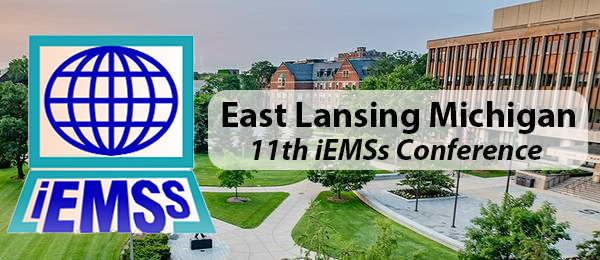Keywords
Agent-based modelling; climate risks modelling; interdisciplinary; COVID-19
Start Date
6-7-2022 7:20 AM
End Date
6-7-2022 7:40 AM
Abstract
The COVID-19 pandemic has taken the world by storm, disrupting supply chains and affecting livelihoods all over the globe. The pandemic has thus pushed for many researchers to dig deeper into understanding the exposure patterns of the outbreak and also to develop numerical models and tools for doing so. While the wealth of models produced has been helpful in understanding the different dimensions of the pandemic and to test out different policy actions that can prevent its spread, they can also be useful in the environmental modelling domain. This research work aims to capture the learnings and insights from these models and highlight their usefulness and possible contributions to further push environmental modeling. This work mainly focuses on Agent-based Modeling (ABM) tools that were developed for COVID- 19 and showcase opportunities for commonalities that can bring fresh insights in the use of ABM in environmental modellings. This is especially true for using ABM for natural disaster risk management, either for floods and drought and also exposure to heat waves. The research operationalizes the popular risk assessment framework used for climate related risks and shows how the insights and approaches used in COVID-19 ABM models can deepen our analysis of those climate related risks. Our aim is to increase interdisciplinarity among the environmental modelling domain. We also provide a framework to encourage and facilitate collaborative conceptual modelling for ABM models that pushes the domain to new levels of understanding of risk and agent’s behaviors to mitigate it. Finally, this framework creates new spaces for environmental modelers to collaborate with other disciplines and leapfrog to a new era of modeling environmental risks, hazards, exposure and vulnerabilities in way that can make monumental differences in facing the upcoming environmental challenges.
Emerging from the COVID-19 pandemic: Insights for
The COVID-19 pandemic has taken the world by storm, disrupting supply chains and affecting livelihoods all over the globe. The pandemic has thus pushed for many researchers to dig deeper into understanding the exposure patterns of the outbreak and also to develop numerical models and tools for doing so. While the wealth of models produced has been helpful in understanding the different dimensions of the pandemic and to test out different policy actions that can prevent its spread, they can also be useful in the environmental modelling domain. This research work aims to capture the learnings and insights from these models and highlight their usefulness and possible contributions to further push environmental modeling. This work mainly focuses on Agent-based Modeling (ABM) tools that were developed for COVID- 19 and showcase opportunities for commonalities that can bring fresh insights in the use of ABM in environmental modellings. This is especially true for using ABM for natural disaster risk management, either for floods and drought and also exposure to heat waves. The research operationalizes the popular risk assessment framework used for climate related risks and shows how the insights and approaches used in COVID-19 ABM models can deepen our analysis of those climate related risks. Our aim is to increase interdisciplinarity among the environmental modelling domain. We also provide a framework to encourage and facilitate collaborative conceptual modelling for ABM models that pushes the domain to new levels of understanding of risk and agent’s behaviors to mitigate it. Finally, this framework creates new spaces for environmental modelers to collaborate with other disciplines and leapfrog to a new era of modeling environmental risks, hazards, exposure and vulnerabilities in way that can make monumental differences in facing the upcoming environmental challenges.



Stream and Session
false